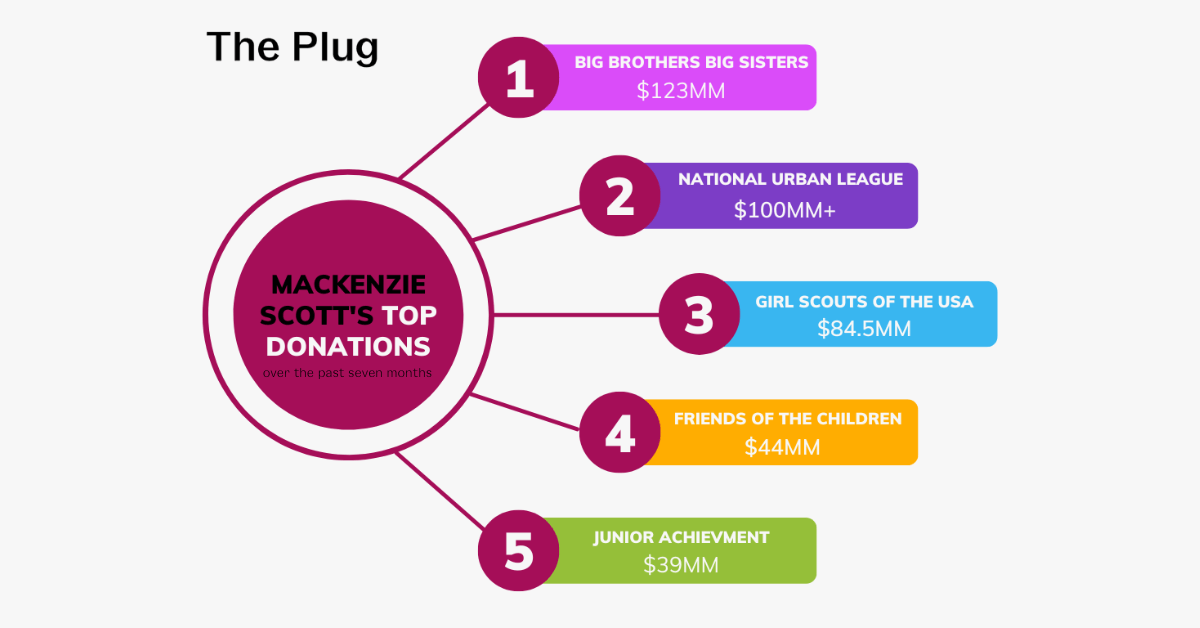KEY INSIGHTS:
- Deloitte has committed $10 million to the Black Economic Alliance Foundation to support its efforts to improve work, wages and wealth for Black Americans.
- The BEA Foundation recently received $1 million from Cisco for its new fund to support Black entrepreneurs.
- The United States economy lost $16 trillion since 2000 due to discriminatory practices, a report found.
The Black Economic Alliance (BEA) Foundation, a nonprofit organization that supports Black economic mobility, announced this month a $10 million commitment from consulting firm Deloitte aimed to promote financial inclusion.
The investment provides “flexible funding” to support BEA Foundation’s research, policy education and philanthropic programs and investments, Samantha Tweedy, BEA Foundation President, told The Plug.
“As leaders across the private, public and social sectors dedicate tremendous energy and resources to combat the vast economic inequities Black Americans face, the question remains: how do we ensure that the collective impact of these efforts will create a new, equitable economic infrastructure,” Tweedy said.
The $10 million will be distributed over five years and also includes pro bono assistance from Deloitte. This year, the grant will be used to facilitate surveys, focus groups and polling of the Black community about their perspectives on the opportunities and barriers to building economic prosperity and generational wealth.
“Together, we will facilitate actionable solutions that can help reshape the future for Black Americans,” Kwasi Mitchell, chief purpose officer at Deloitte, said in a press release. Deloitte’s investment in the BEA Foundation is part of its $1.5 billion social impact investment initiative.
To the BEA Foundation, financial inclusion looks like equitable access to capital and resources, Tweedy explained.
“There remains a myth that when it comes to economic prosperity and wealth, we are facing a zero-sum game. Yet, the data tells a completely different story,” she said. “The fact that Black Americans have never been full participants of the U.S. economy has undermined our nation’s strength and global competitiveness.”
The United States economy lost $16 trillion over the past 20 years as a result of systemic racism, according to a study by Citigroup, due to discriminatory practices such as access to business loans, disparities in wages and access to higher education. If the gaps are closed, the report estimates that the economy would see a $5 trillion increase in U.S. gross domestic product over the next five years. In comparison, the U.S. GDP was $23 trillion in 2021.
“A key component of our work is centering solutions to drive Black economic mobility within the larger economic context,” Tweedy said. “Deloitte’s support will help us measure and advance national understanding of the inextricable link between the health of the Black economy and the entire American economy.”.
The BEA foundation has previously conducted polls and surveys on topics such as the top five issues to include in an economic agenda and has compiled research insights on Black economic policy issues.
Last month, the BEA Foundation also announced a partnership with Cisco in collaboration with Clark Atlanta University to support the HBCU-based Center for Black Entrepreneurship (CBE).
Cisco is giving more than $4 million in grants and specialized technical services to Clark Atlanta, Morehouse College and Spelman College for the development of the CBE. The company is also giving $1 million to the BEA Foundation’s Entrepreneurs Fund, an investment fund that has a portion dedicated to startups created by graduates of the CBE.
The BEA Entrepreneurs Fund is still in development with the eventual goal of providing $50 million of capital to businesses founded and led by Black entrepreneurs. The fund is anchored by a $20 million commitment from Wells Fargo.
Giving Black Americans economic agency will benefit the entire economy, Tweedy said, noting that if Black-owned businesses operated in an equitable system, an estimated 1.1 million businesses owned by people of color would produce nine million more jobs and $300 billion in workers’ income.
“It’s time for systemic change across the public, private and social sectors to create a new economic infrastructure that is truly inclusive,” Tweedy said.








